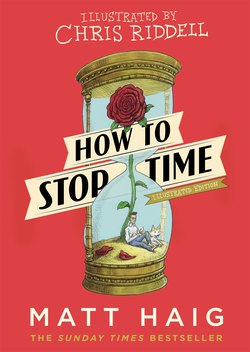Читать книгу How to Stop Time - Matt Haig - Страница 18
На сайте Литреса книга снята с продажи.
ОглавлениеLondon, 1891
Dr Hutchinson didn’t know it was me. I mean, he wouldn’t have recognised the name from the list of appointments because the last time he had seen me I was Edward Cribbs and now I was back, for the first time since my youth, with my true name again. Well, true first name. I was Tom. Not the Huguenot Hazard or the dull Smith but the rather more symbolic Winters.
It was a warm day – the fourth of June – and I had ridden into town on a horse-dragged cart that belonged (both the cart and the horse) – to my sullen boss Jeremiah.
The London Cutaneous Institution for Treatment and Cure of Non-infectious Diseases of the Skin was now called the London Skin Clinic, but otherwise everything was still much as I remembered it. The fine furnishings, the three flights of stairs. Even Dr Hutchinson’s office was much as before, though somewhat more cluttered. His desk now overflowed with papers and open books, and his leather chair had a rip in it. It was still essentially the same place, but it looked like it had been hit by a whirlwind.
Dr Hutchinson, like most humans, had aged far ahead of his environment. His once distinguished beard was now wispy and grey and sparse. The whites of his eyes were yellowing and his hands were twisted with arthritis and spotted from time. And that rich plum voice now came with raspy intakes of breath. He was, in short, an ordinary human and time was doing its work.
‘So, Mr Winters. Now, I don’t seem to have any notes for you.’ He hadn’t looked up since I had entered the room. He just stared down at the chaos of papers on his desk.
‘When I arranged the appointment I didn’t give any information.’
And it was then that he looked at me. At first he noticed my unclean clothes and blackened hands, and might have wondered what a rough-dressed man like myself was doing in his office.
‘I settled the payment downstairs,’ I said, clearing my throat. ‘I am now wondering if you recognise me.’
He looked up. His eyes met mine.
‘The last time I came to see you I did so under the name of Edward Cribbs. Do you remember that name? Do you remember? You advised me to go to the lunatic asylum.’
The rasping of his breath grew louder. He stood up out of his leather chair and came over to me. He stood ten inches from my nose. He rubbed those aged eyes.
A whisper. ‘No.’
‘You remember, don’t you? You do. I can see. Thirty-one years ago.’
He was out of breath, as if the realisation was a hill he had climbed. ‘No. No, no, no. It can’t be. It is an illusion. You might be Maskelyne or Cooke.’ (Maskelyne and Cooke were the illusionist double act of the day, who’d just been doing a host of London shows.)
‘I assure you it is I, sir.’
‘I must have taken leave of my senses.’
It was depressing that he found it so much easier to question his sanity than my reality.
‘No, sir, I assure you that you haven’t. The condition I told you about, my condition, the condition of holding back the tide of years, the condition that sounds like a blessing but which is also a curse – is real. I am real. My life is real. This is very real.’
‘You are not a ghost?’
‘No.’
‘You are not a spectre of my mind?’
‘No.’
His hand reached out to touch my face.
‘What was the day of your birth?’
‘I was born on the third of March in the year fifteen eighty-one.’
‘Fifteen eighty-one.’ He repeated it not as a question but as something so incredible it needed saying before it could be absorbed. ‘Fifteen eighty-one. Fifteen eighty-one. You were eighty-five years old when the Great Fire of London—’
‘I felt its heat. Its sparks singed my skin.’
He stared at me in a new way, as if he was a palaeontologist and I was a fresh dinosaur egg, ready to hatch. ‘Well, well, well. This changes everything. Everything.
‘Tell me, are you the only one? Have you ever known anyone else like you? With this . . . condition?’
‘Yes!’ I said. ‘There was a man I met once, during Captain Cook’s second voyage. A man from the Pacific Islands. His name was Omai. He became the rarest of things – a friend to me. And also . . . my daughter Marion. I have not seen her since she was a girl. Her mother told me that she had inherited my condition. That she stopped ageing normally around eleven years of age.’
Dr Hutchinson smiled. ‘This is a gigantic thing to comprehend.’
And I smiled too, and felt the soul-anchoring joy of being understood.
And this joy stayed inside me right up until Dr Hutchinson’s body was found floating in the Thames thirteen days later.
